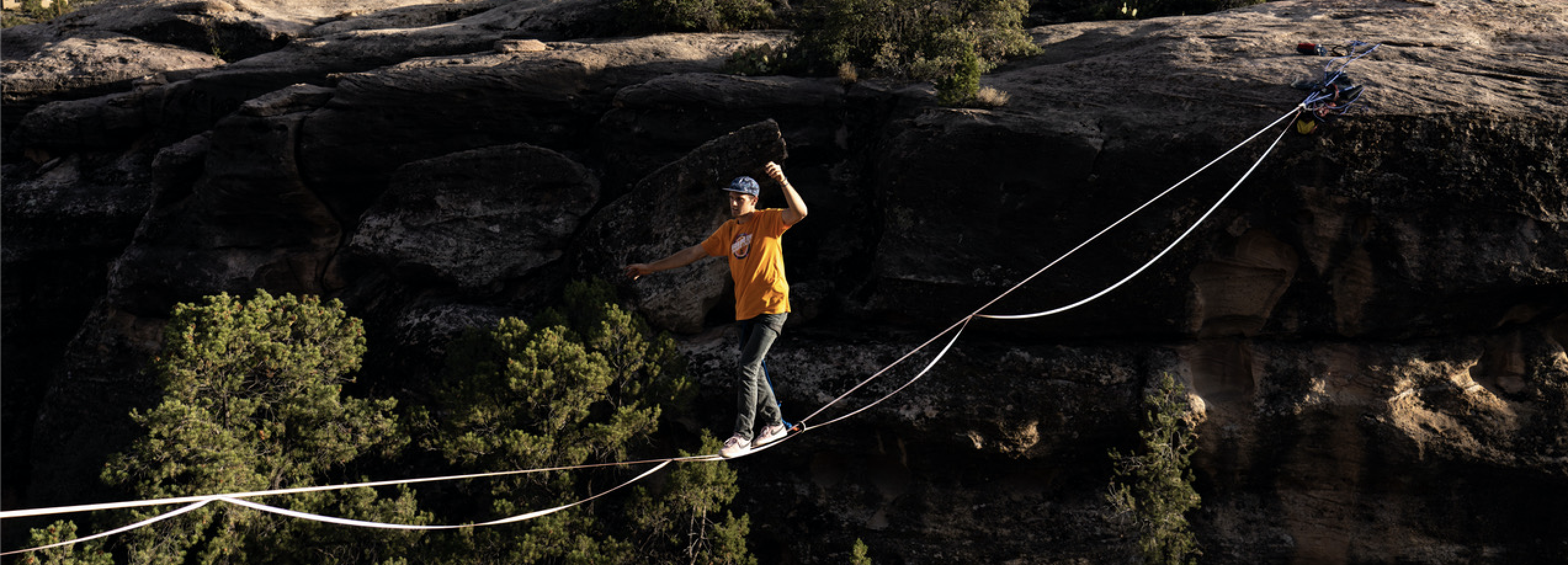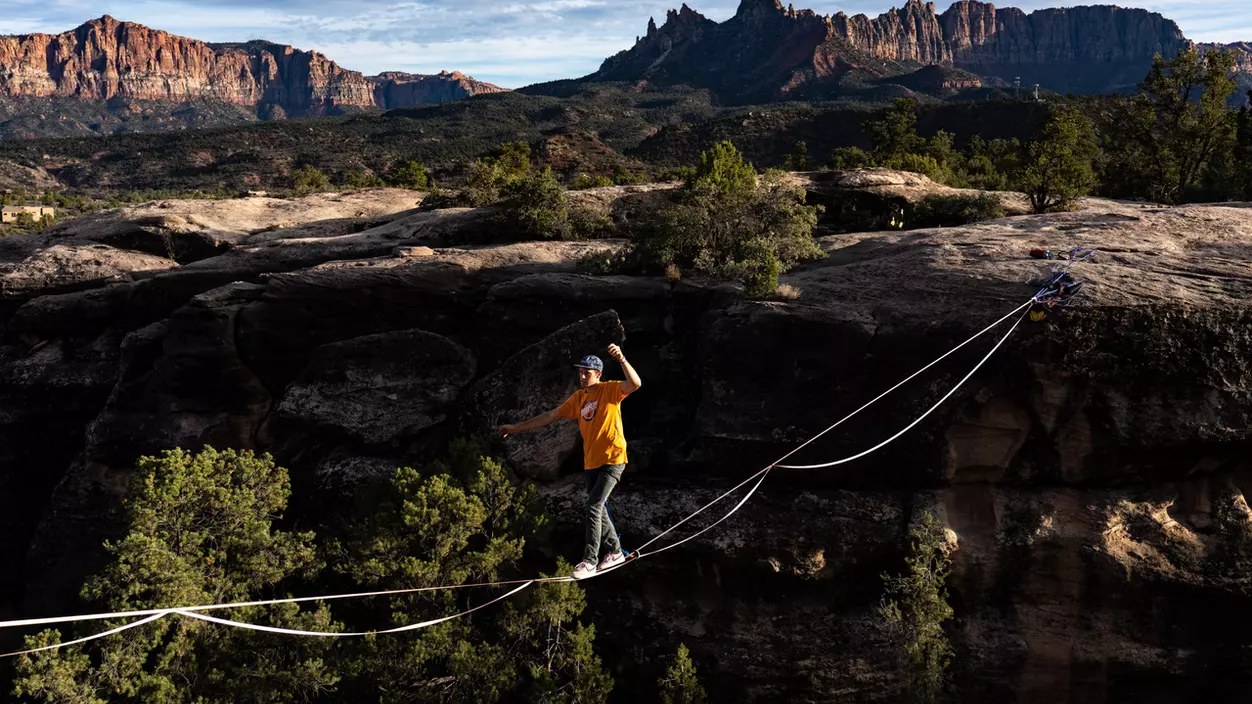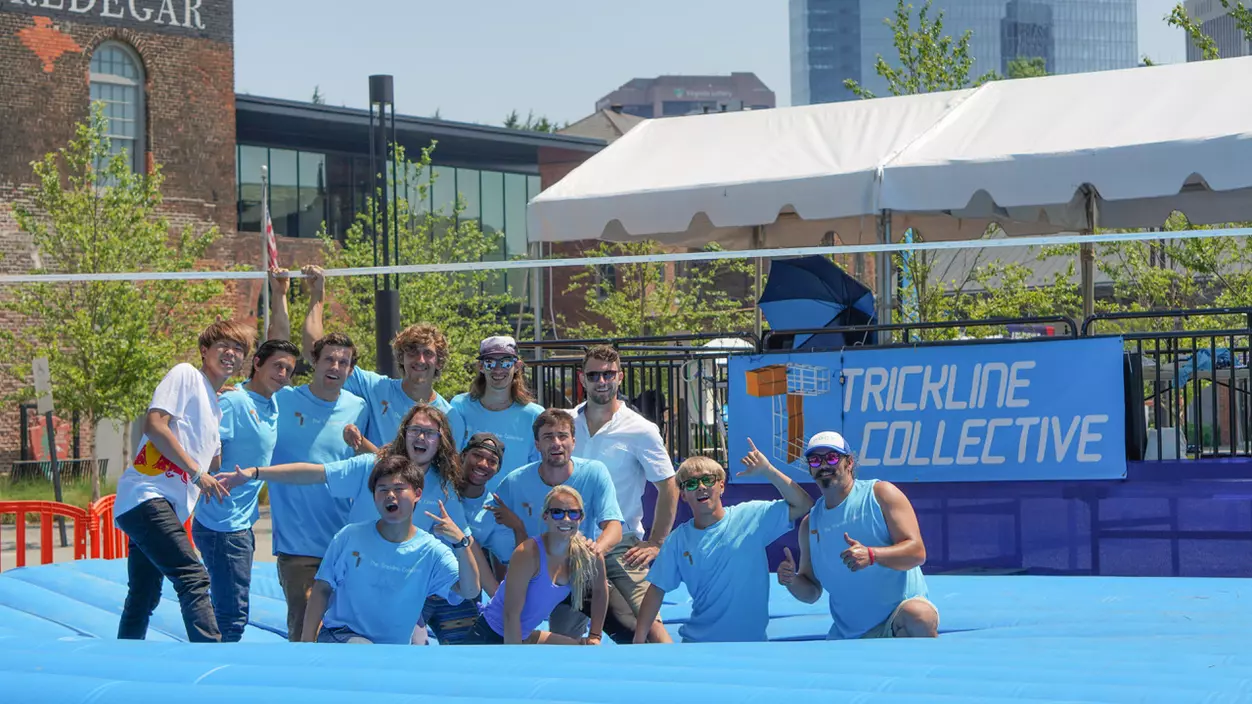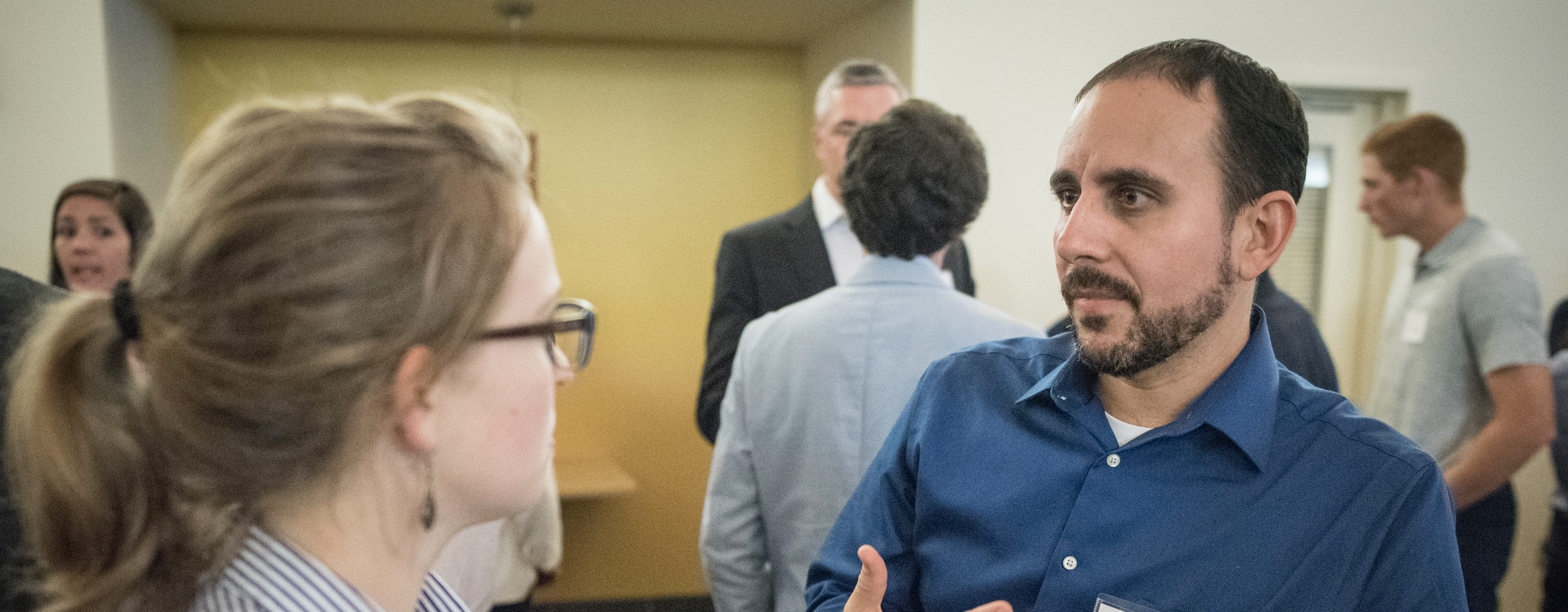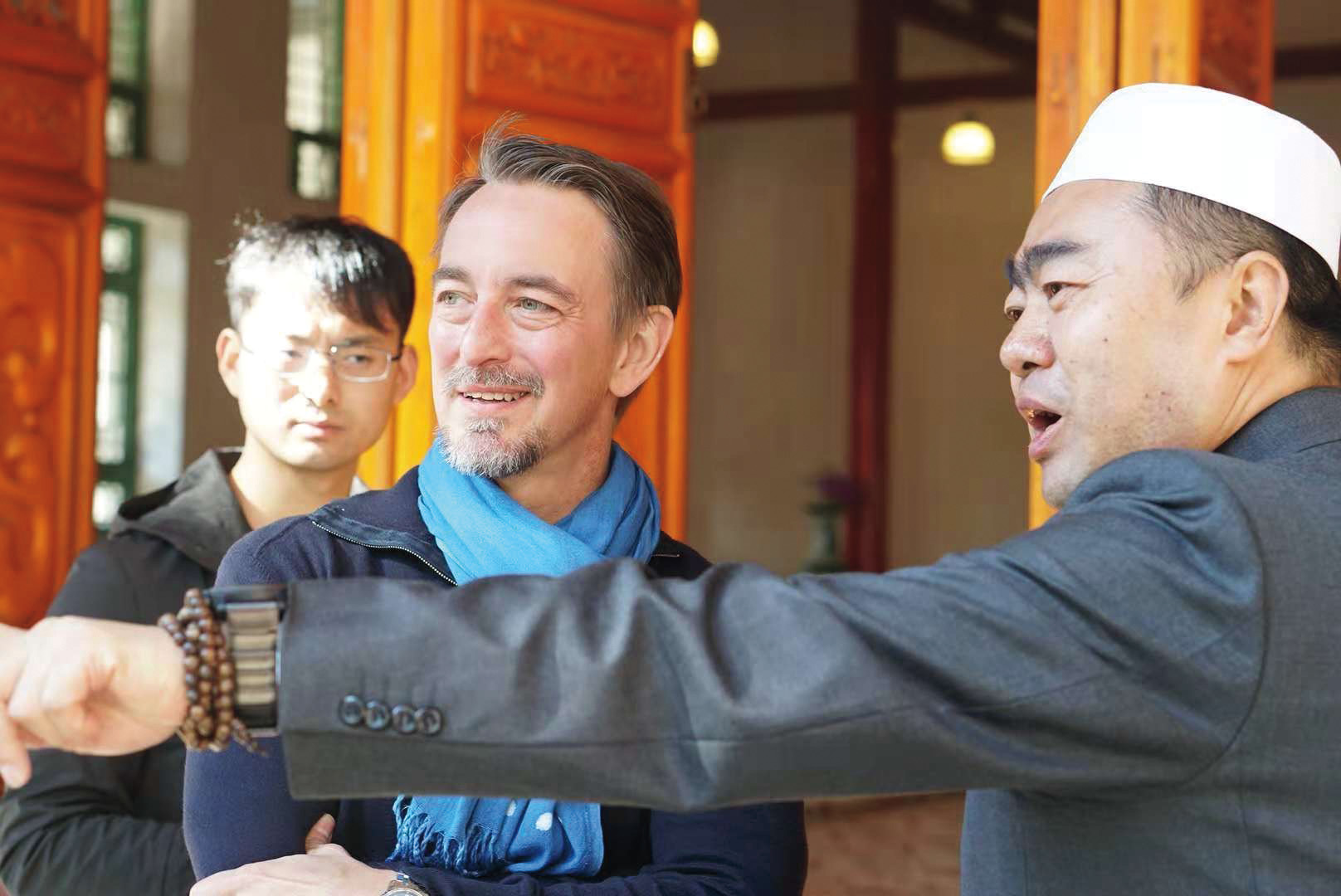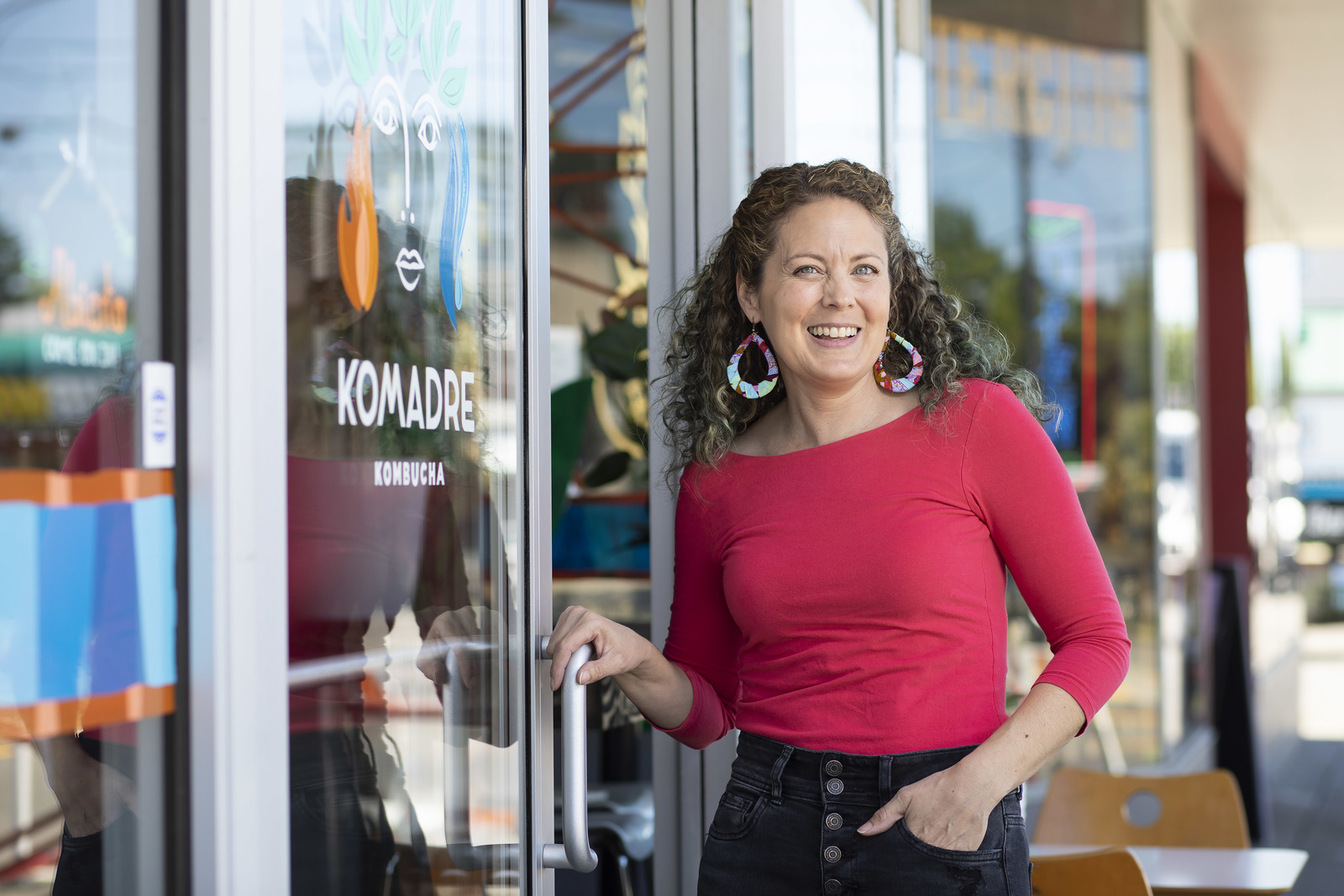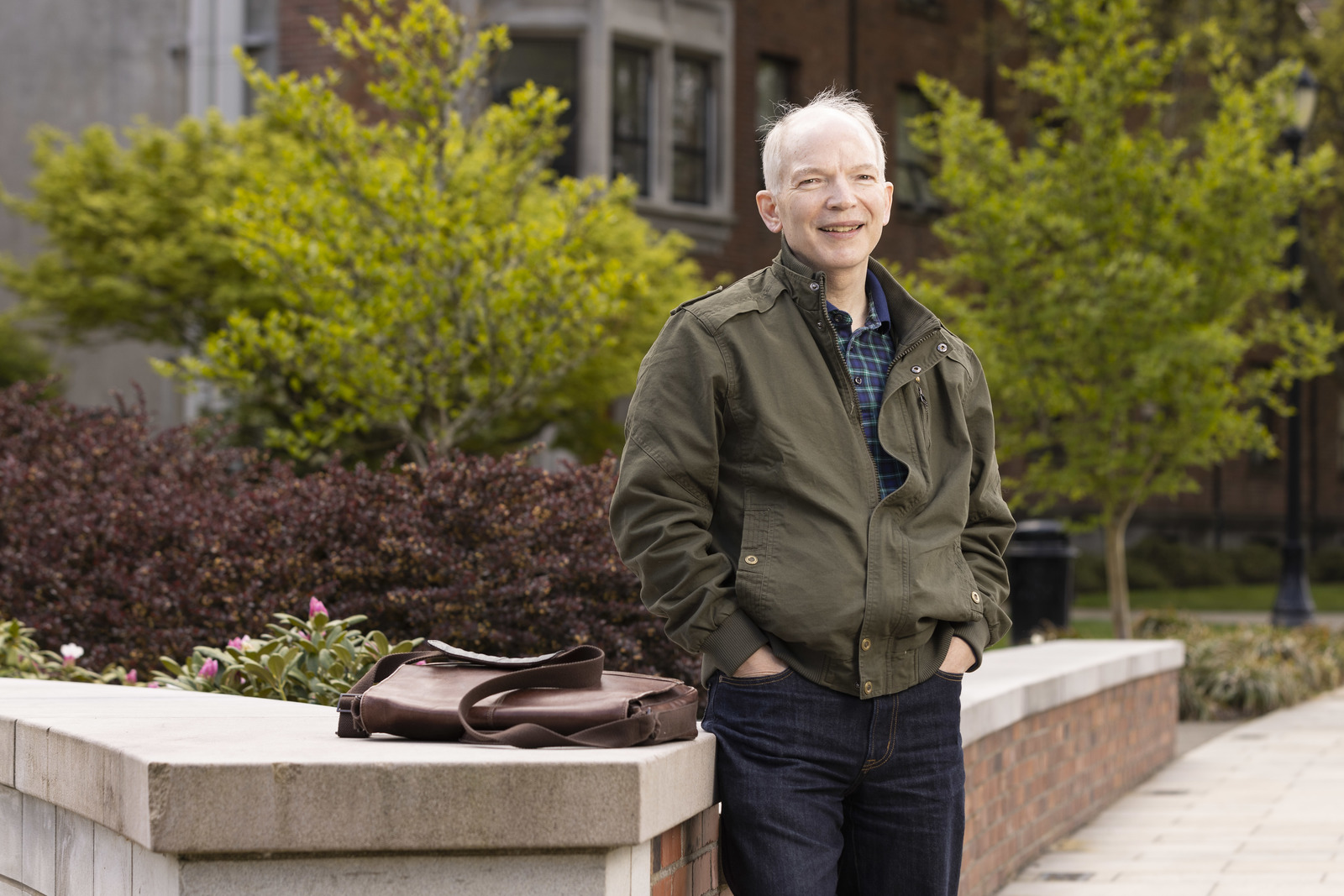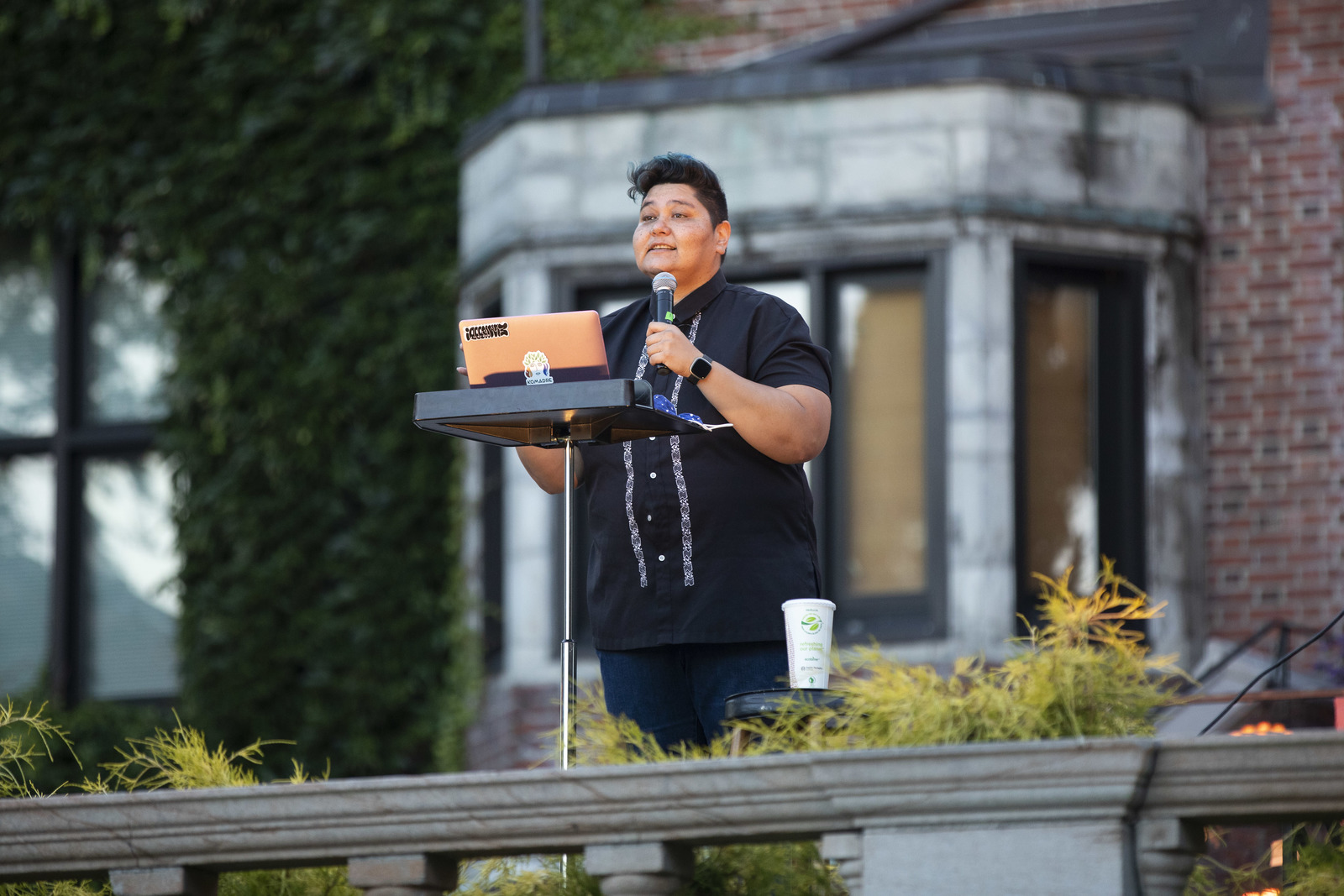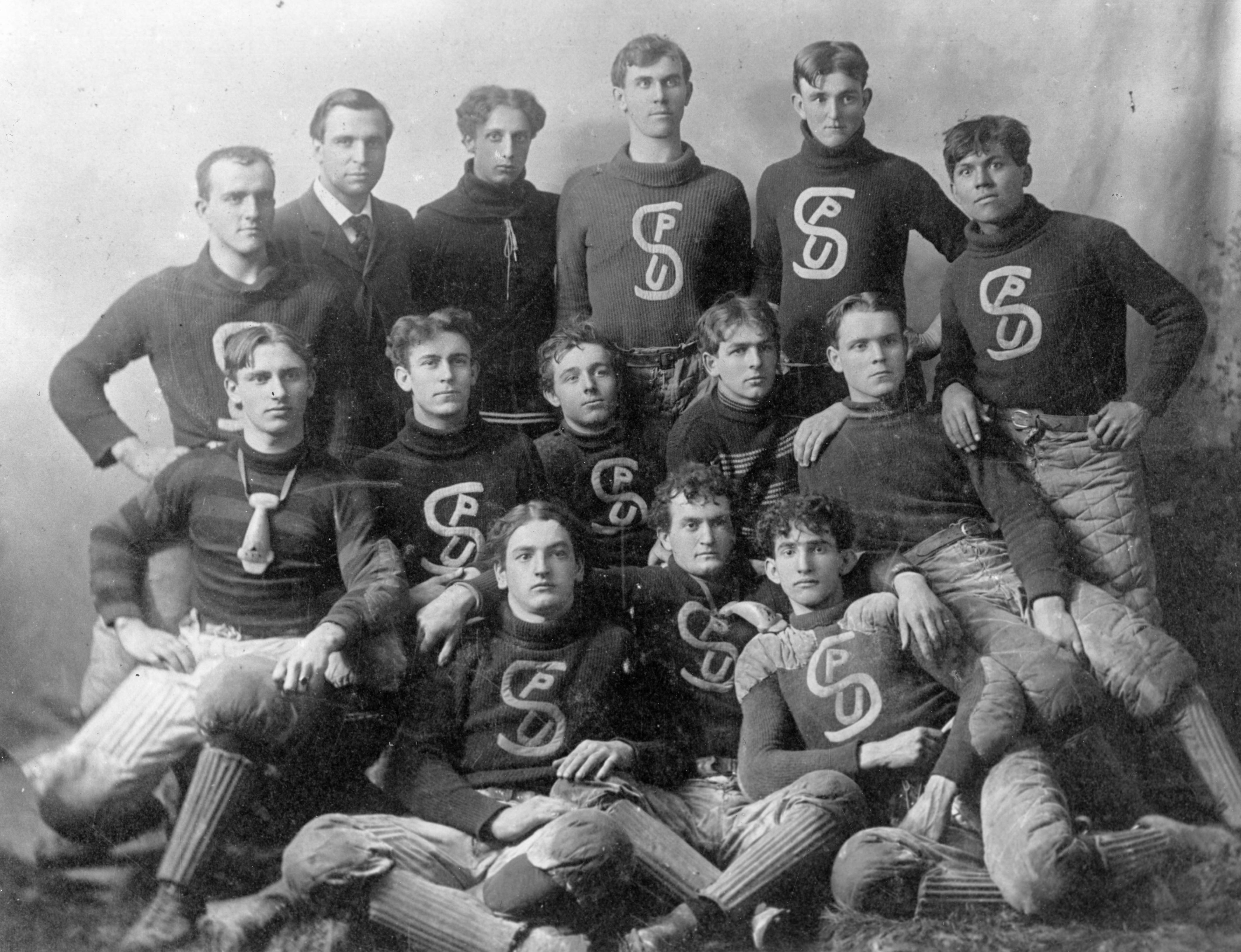Justin Wagers ’17 held his arms straight out at his sides, using them to adjust his balance as he made his way across a 1-inch-wide length of nylon webbing.
He could feel the taught fabric swaying under his toes, threatening to knock him off balance. More than 100 feet below, onlookers watched, rapt, as he stopped walking, lifted one foot off of the webbing and held it out to the side, before placing it back on the length of fabric and continuing across the expanse.
Justin was in the middle of the Atlantic Ocean, aboard one of the world’s largest Royal Caribbean cruise ships working as a slackliner for guest entertainment. Every night, he would walk along the narrow, suspended length of webbing between the cruise ship towers as one of more than a dozen performers in The Fine Line, a show dedicated to extreme sports from high diving to acrobatics. It’s the last place he thought he’d ever be.
After all, he had only been slacklining for about six years. His father, an avid rock climber, bought a slackline for Justin when he was in high school. “I started pretty late, in terms of when athletes usually start their sport,” Justin says. “But I was hooked.”
